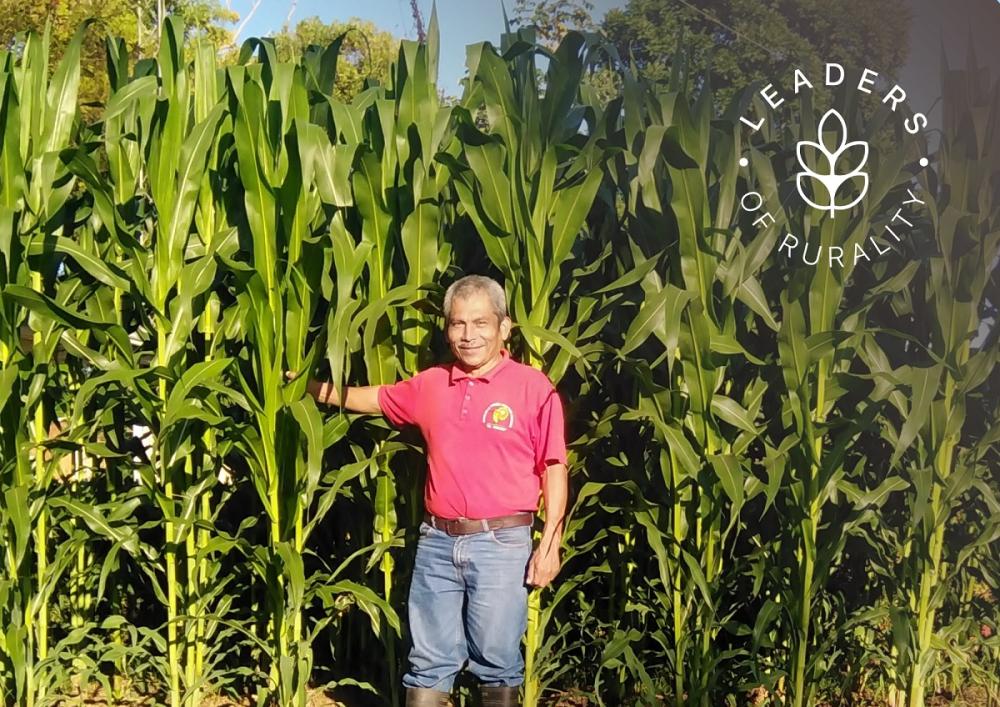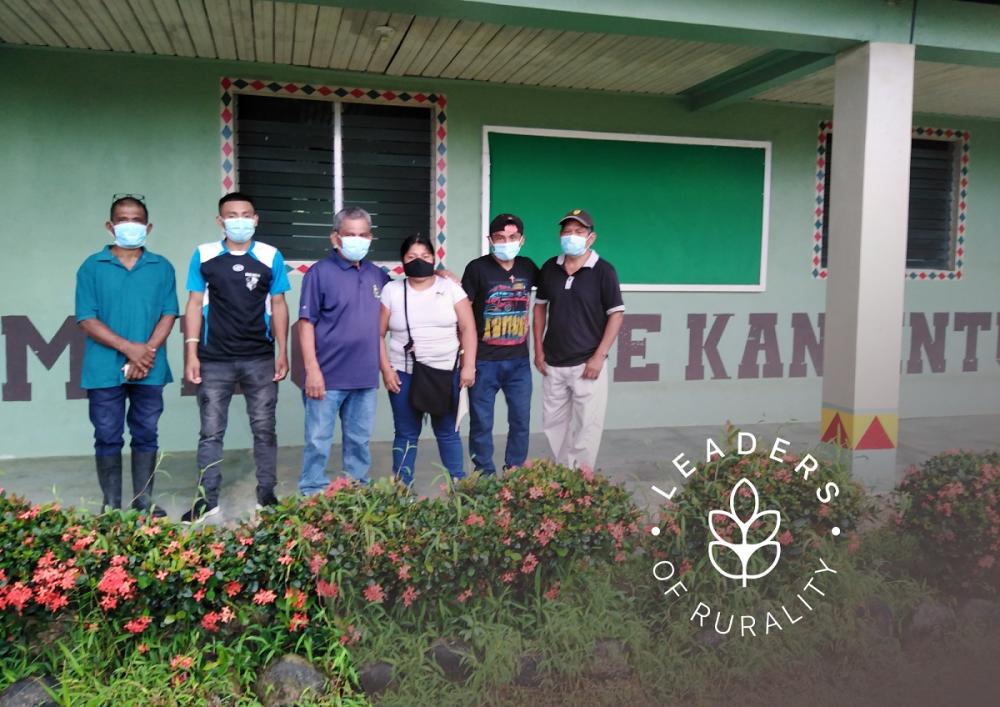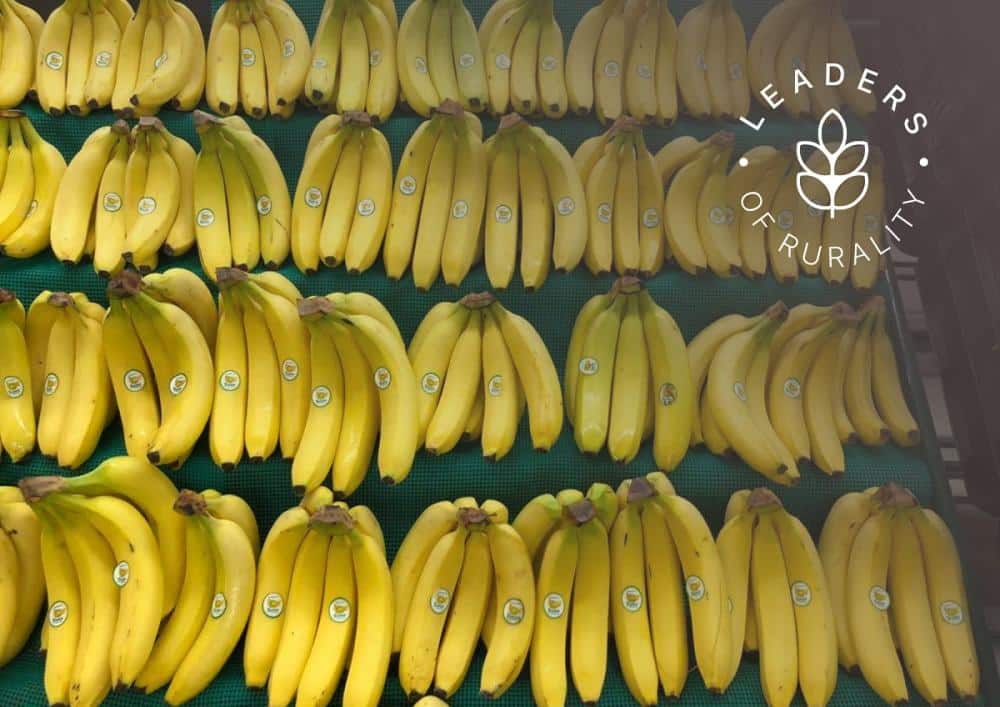Quintero, who forms part of the Ngäbe-Buglé indigenous community, lost his mother at the age of 6 and had to work from an early age to support his siblings. He became a union leader shortly after becoming a banana farmer, and in 1991, he co-founded the banana cooperative Cooperativa de Servicios Múltiples Bananera del Atlántico (COOBANA), which currently has 220 members and more than 600 workers.

San Jose, 14 July 2022 (IICA). Panamanian farmer Chito Quintero, who was born in an indigenous region, was raised in poverty and now promotes a banana cooperative that exports to different countries and has improved living conditions for his community, was recognized as one of the “Leaders of Rurality” of the Americas by the Inter-American Institute for Cooperation on Agriculture (IICA).
Quintero will receive the “Soul of Rurality” award, an initiative by the agency specialized in agricultural and rural development to pay tribute to men and women who are leaving their mark and making a difference in the rural communities of the Americas, a key region for food and nutrition security and the environmental sustainability of the planet.
Quintero, who forms part of the Ngäbe-Buglé indigenous community, lost his mother at the age of 6 and had to work from an early age to support his siblings. He became a union leader shortly after becoming a banana farmer, and in 1991, he co-founded the banana cooperative Cooperativa de Servicios Múltiples Bananera del Atlántico (COOBANA), which currently has 220 members and more than 600 workers.
COOBANA owns 560 hectares of land in the district of Changuinola, in the province of Bocas del Toro, where it carries out important social work, ranging from helping farmers to improve their homes, to providing scholarships for elementary and higher-level education.
The Leaders of Rurality award recognizes individuals who are playing a critical dual role as guarantors of food and nutrition security and custodians of the planet’s biodiversity, by producing under any condition. The recognition also highlights these individuals’ capacity to serve as role models in the region’s rural areas.
The self-made Panamanian farmer who now inspires his community
Everything that Chito Quintero has achieved in his life for the benefit of his family and community has been the result of hard work. An orphan from a very young age, he has come a long way in agriculture, from subsistence farmer to one of the leaders of a large banana farming cooperative, which now exports high-quality food to countries around the world and supports hundreds of Panamanian peasant families.
Chito forms part of the Ngäbe-Buglé indigenous community, the largest of the seven indigenous communities in that Central American country, with nearly 300,000 members. The Ngäbe-Buglé were granted communal land ownership in the provinces of Bocas del Toro, Chiriquí and Veraguas.
Chito was born in one of these underprivileged regions. At the age of 6, he suffered an indelible blow when his mother died during the birth of her fourth child. With the help of a neighbor, he managed to survive, but Chito and his siblings were left under the care of their grandmother, and their lives took a turn from that moment on.
“We never experienced hunger while my mother was still alive, because she planted corn and vegetables, so we always had something to eat. My grandmother, on the other hand, was already disabled when we were put under her care, so my siblings and I had to venture out from a very young age to find whatever we could to survive”.
Chito left for the city and worked odd jobs to earn some money to support his siblings. He then returned to the countryside and, in 1968, got his first job in a banana plantation. At that time, he had not attended school and did not know how to read or write. He had also survived several diseases that nearly killed him, such as measles and whooping cough.
“Things were very different back then: child labor was common and laws to protect workers were not enforced”, he says.

Upon joining the banana plantation, Chito began to learn the ins and outs of farming and to share his knowledge with his community, where they planted corn, cocoa and different types of vegetables for subsistence. Those were hard times. “In the banana plantation, I worked from 5 a.m. to 5 p.m. for half a dollar a day. I made only three dollars a week”, he recalls.
He became a social leader and quickly joined the Industrial Union of Independent Banana Workers and Producers (SITRAPI), with the aim of achieving better working conditions for rural workers.
In 1991, he co-founded Cooperativa de Servicios Múltiples Bananera del Atlántico (COOBANA) together with 74 other workers, marking a significant turning point.
Together, the farmers raised an initial capital of USD 1,480 and took out loans to purchase a banana company. Their efforts were so successful, that the cooperative managed to raise USD 7,200,000 to purchase a company with 560 hectares of land. They also managed to repay their loan after just eight years of work.
Because banks requested guarantees from a company familiar with the banana industry, multinational company Chiquita, the main distributor of bananas in the United States, provided its support and offered to serve as guarantor for the loan, in exchange for a contract that would enable them to exclusively sell the cooperative’s products for a period of 20 years.
When the contract expired in 2011, the farmers decided to go at it alone and directly export their own production. “I was excited about the prospect, but people would tell me it was an impossible feat, because Chiquita had the infrastructure and business expertise that we lacked. But I was determined. I knew that nothing can be accomplished unless you try”.
At present, the cooperative, which is headquartered in the district of Changuinola, in the province of Bocas del Toro, is comprised of 220 members and 600 workers. It has been selling Fair Trade certified bananas independently since 2010. The benefits of Fair Trade, including adequate remuneration, have enabled many workers to improve their quality of life and provide their children with elementary and higher-level education through scholarships.
COOBANA, which sells its fruit to countries such as Switzerland, the Netherlands, the United Kingdom, Italy and New Zealand, won the 2017 Exporter of the Year award, granted by Panama’s Ministry of Trade and Industry. The cooperative exports one million 18 kg boxes per year. It also sells to supermarkets in Panama.
COOBANA also provides platforms through which key stakeholders in the global banana supply chain can cooperate to develop best practices for sustainable production and trade.
The families that form part of the cooperative plant, harvest, pack and export the products, and are the backbone of their community. “We share everything we generate” is their motto.

Recently, COOBANA has been undertaking significant efforts to keep plantations free from the tropical race 4 (TR4) strain of the fusarium fungus, a disease originating in Southeast Asia that wilts the banana crop. The disease has spread across banana plantations around the world and has already been detected in a couple of Latin American countries.
The cooperative implements strict control measures for entry to the plantation, including the disinfection of all visitors’ shoes and vehicles.
“As farmers, we must be willing to learn”, reflects Chito, who regularly interacts with youth to share his lifelong experiences working the land.
“I remind them that, even on small pieces of land, you can achieve significant production if you apply good practices and use modern technology. One hectare of bananas usually produces enough fruit for 1,500 boxes, but you can produce up to 4,000 boxes through the use of technology”, he remarks.
“Throughout my life, I have witnessed rural communities trapped in vicious circles, experiencing the same frustrations over and over. But the reality could be different: there are so many people working to produce more with fewer resources. I have come to realize that the desire to learn is the greatest power a person can have. Even though I never attended school, I was able to learn to read and write, and nowadays I can even use a computer. That’s why I remind youth that they can accomplish so much more than me. I learned that persevering sets a good example for those around you and that you can only achieve results if you put in the work”.
More information:
Institutional Communication Division.
comunicacion.institucional@iica.int
Photo gallery











